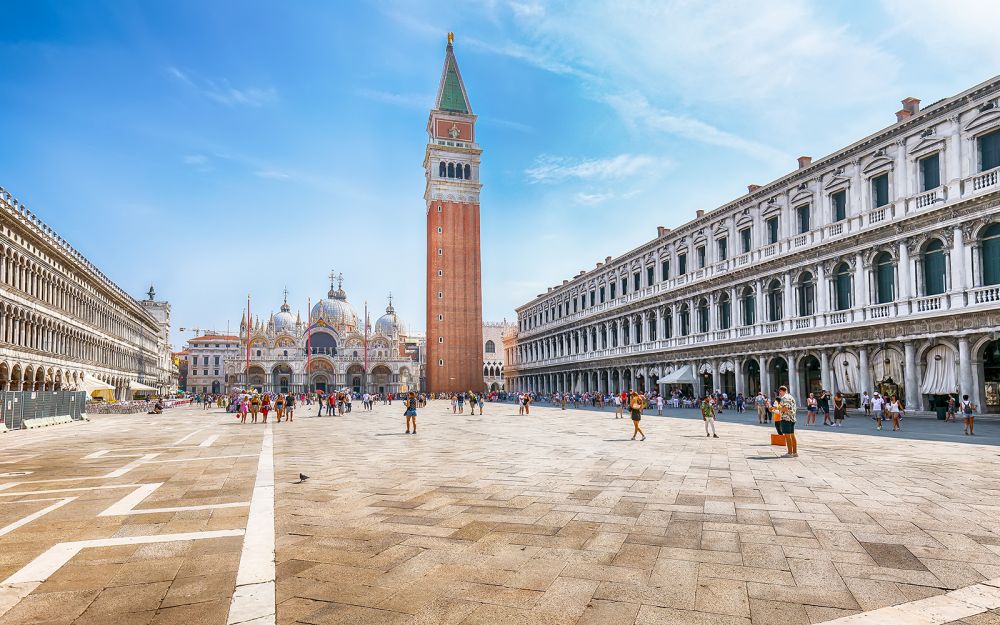

The history of tourism in St. Mark's Square, Venice, can be traced back to the time when Venice was a powerful maritime republic and St. Mark's Square was the political and cultural heart of the city. Known as "Piazza San Marco" in Italian, this famed square has been a magnet for pilgrims, traders, and travelers since the Middle Ages.
The construction of the impressive Basilica di San Marco and its embellishment over time, with the acquisition of relics and treasures, laid the foundations for early tourism. Notably, after the Fourth Crusade and the looting of Constantinople in 1204, the influx of stolen treasures made Venice an even more attractive destination for the curious and the devout.
In the 18th century, the Grand Tour became a rite of passage for young European aristocrats, and Venice was a quintessential stop. St. Mark's Square became the gathering place for these travelers who came to admire the Renaissance art, enjoy the city's cafes, and partake in Venice's famous Carnival.
Tourism in Venice and St. Mark's Square began its modern ascent in the late 19th and early 20th centuries, when the expansion of railway networks and introduction of steamship travel made the city more accessible to the growing middle class. The establishment of the Venice Biennale in 1895 also increased the cultural draw of the city.
In recent years, Venice, including St. Mark's Square, has experienced a surge in tourism, driven in part by the advent of affordable air travel and cruise ships. However, the city has also faced challenges due to overtourism, which has led to crowding and concerns about the preservation of its historic fabric. To address these issues, Venice has implemented various measures, including but not limited to, restricting cruise ship access and considering tourism caps and entry fees.
The COVID-19 pandemic had a significant impact on tourism worldwide, and St. Mark's Square was no exception. Travel restrictions led to a temporary halt in tourism in 2020, giving the city a chance to breathe and reinforcing the importance of sustainable tourism practices as visitation slowly resumes.
Looking ahead, Venice is seeking a balance between welcoming tourists and preserving its unique heritage. Innovations such as virtual reality experiences and augmented tours are likely to complement physical visits, helping to distribute tourists away from hotspots like St. Mark's Square. Meanwhile, efforts to prioritize sustainable travel and local experiences are aimed at ensuring the square and the wider city can be enjoyed by generations to come.
Venice's city officials and local communities are increasingly focused on sustainable tourism. Initiatives to reduce the environmental impact include encouraging off-season travel, promoting other Venetian neighborhoods, and enhancing cultural tourism that benefits the local economy while conserving the historic character of St. Mark's Square.